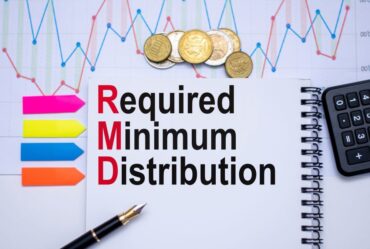Top 3 Financial Challenges After Retirement
Retirement is an exciting life milestone that requires years of forward planning. Once you’re retired, however, the financial planning doesn’t stop. In fact, there are many things to consider after one retires to ensure they are set up for success.
Let’s look at the top three financial challenges that happen after retirement, including accurately determing how long your nest egg will last, knowing when to draw on various sources of retirement income, and knowing how to strategically control your tax bracket so you don’t end up paying more in taxes.
How Long Will My Nest Egg Last?
It’s impossible to know exactly how long your savings will last, but there are a few important factors to consider. Consider your expenses and budgeting, taxes, and inflation.
Budgeting
As you plan for your retirement income distribution, it’s more important than ever to establish a realistic budget and stick to it. Overspending, even for a short period, can shave years off the longevity of your assets. Calculate your monthly income given your withdrawal strategy, and then create a budget. Then make sure to track your income and spending along the way so you stick to your plan.
Taxes
Unfortunately, you won’t get to keep all the money that’s in your retirement savings account due to taxes. Different sources of retirement income are taxed differently (as we will explain below), but it’s important to know whether or not your savings are/were tax-deferred. For example, with a Roth IRA, you contribute after-tax dollars, your money grows tax-free, and you can generally make tax- and penalty-free withdrawals after age 59½. With a traditional IRA, you contribute pre- or after-tax dollars, your money grows tax-deferred, and withdrawals are taxed as current income after age 59½. (1)
Inflation
Another important factor to consider when determining how long your money will last is inflation. As of this writing, the annual inflation rate for the United States is 8.3% for the 12 months ended April 2022 after rising 8.5% previously. (2) Inflation means that a dollar a day is worth less than a dollar tomorrow, so by the time you retire (or as you live in retirement), your money won’t have the same buying power. This is important as you project 10, 20, or 30 years into retirement.
Drawing on Various Sources of Retirement Income
How you take your money out in retirement is just as important as the years you spent saving your money. Strategically drawing on these sources of income includes tax planning, reviewing your tax return, and, most importantly, distribution optimization. That’s why you should capitalize on your wealth by determining a tax-efficient way to withdraw funds in your golden years.
Different financial accounts are taxed at different rates. Traditional IRAs and 401(k)s get taxed at the ordinary income tax rate when you withdraw. Roth IRAs and Roth 401(k)s are taxed beforehand, so the money is withdrawn tax-free. Funds in a taxable investment account are taxed at the capital gains tax rate, which is different from your ordinary income tax rate.
Calculating when might be the best time to pull from each account is enough to give anyone a headache. However, the last thing anyone wants is to get hit with a hefty tax bill when trying to stretch their money for decades. Create a withdrawal strategy with the help of a trusted professional who can assist you in withdrawing funds at a sustainable rate and help ensure that you’re doing it in a tax-efficient way.
Using Your Tax Bracket to Your Advantage
In addition to making your nest egg last throughout retirement, another advantage of budgeting your assets is to come up with a plan for tax savings. One of the financial mistakes we see people make in retirement is leaving opportunity on the table. Maybe the individual has an opportunity for Roth conversions. Another common mistake might be withdrawing too much money and ending up in a higher tax bracket. You should consider your expenses and withdrawal strategy in terms of today’s tax brackets. Here are the tax brackets as of 2022: (3)
- 37% for individual single taxpayers with incomes greater than $539,900 ($647,850 for married couples filing jointly)
- 35%, for incomes over $215,950 ($431,900 for married couples filing jointly)
- 32% for incomes over $170,050 ($340,100 for married couples filing jointly)
- 24% for incomes over $89,075 ($178,150 for married couples filing jointly)
- 22% for incomes over $41,775 ($83,550 for married couples filing jointly)
- 12% for incomes over $10,275 ($20,550 for married couples filing jointly)
Tackle These Financial Challenges With Ease
These are just a few of the many financial challenges and concerns you will face in retirement. If you need help tackling these or other challenges, we at New Century Investments would love to help. Schedule a complimentary introductory consultation by calling us at 817-238-6300, emailing Matt.Ward@NewCenturyInvestments.com, or scheduling an appointment online.
About Matt
Matt Ward is a financial advisor and the president of New Century Investments, an independent investment advisory firm serving business owners, pre-retirees, and retirees in the Dallas-Fort Worth area and beyond. Matt is passionate about integrating investing, planning, and tax management into a holistic approach. Matt’s breadth of knowledge and experience in both taxes and investment management sets him apart, giving him the ability to design, advise on, and manage business strategies, tax efficiency, and retirement planning. He is known for his care and attention to detail and works hard to develop personal relationships with each of his clients so they can benefit from his customized service and guidance. He loves walking with his clients through their financial journey, supporting them and celebrating with them as they reach their goals.
Matt graduated from Texas Tech University with a bachelor’s degree and is a Certified Financial Planner™ and Chartered Retirement Planning Counselor℠ professional. When he’s not working, you can find Matt hiking, playing the guitar, and spending time with his family. To learn more about Matt, connect with him today!
_______________
(1) https://www.investopedia.com/retirement/roth-vs-traditional-ira-which-is-right-for-you/
(2) https://www.usinflationcalculator.com/inflation/current-inflation-rates/
(3) https://www.irs.gov/newsroom/irs-provides-tax-inflation-adjustments-for-tax-year-2022





